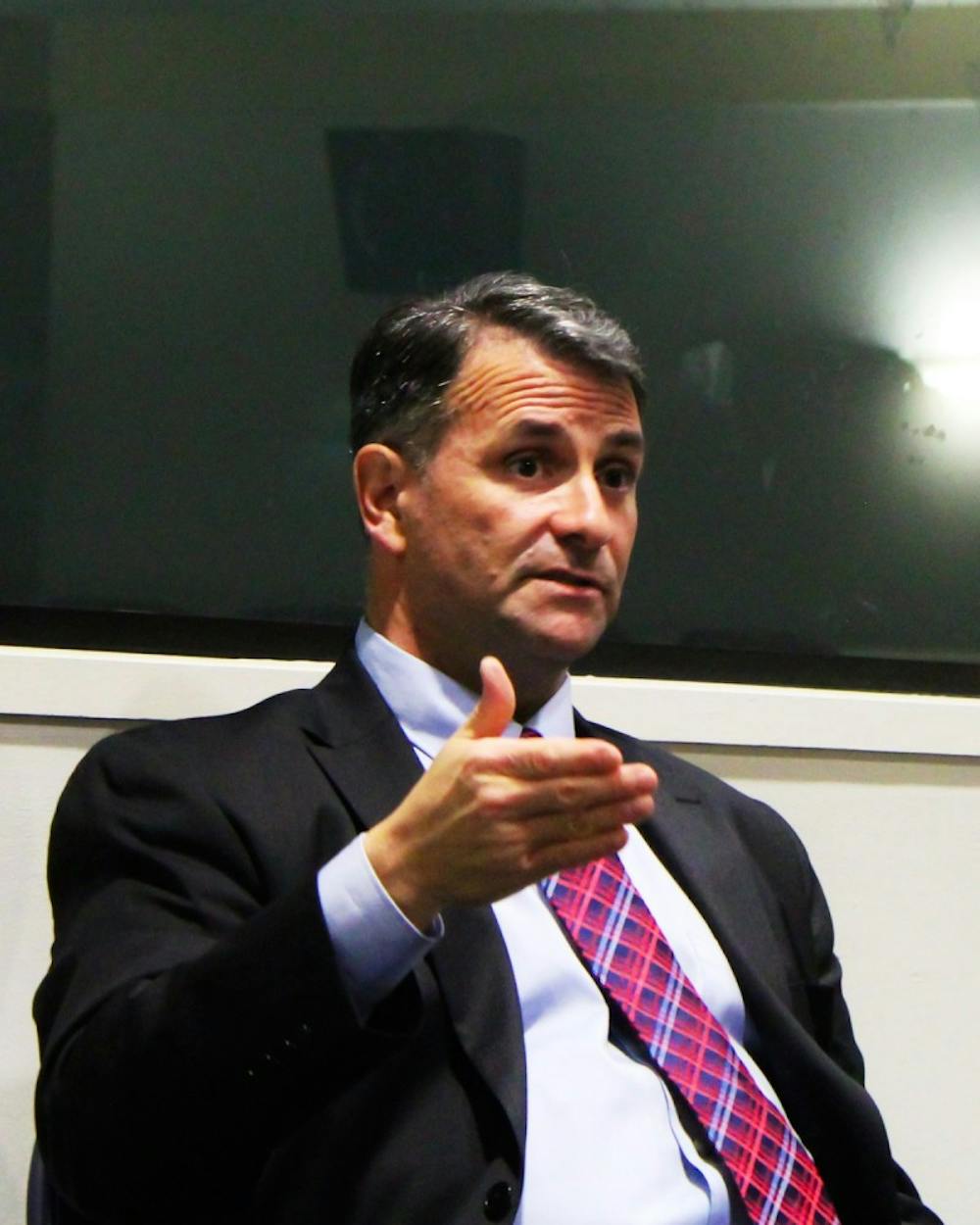Jack Abramoff doesn’t look like an ex-convict.
He doesn’t even look like the powerhouse lobbyist he once was, vilified as “the man who bought Washington.”
With his silver-streaked hair and charcoal-gray suit, he looked like he belongs more on Wall Street than K Street when he spoke at AU for three hours on March 21.
But Abramoff is known as the face of everything that’s wrong with the influence industry.
In 2006 he was sentenced to more than three years in prison for fraud, tax evasion and conspiracy to bribe public officials.
But now he’s out free, and he discussed his time in prison, his thoughts on lobbying reforms, his new book “Capitol Punishment: The Hard Truth About Washington Corruption From America's Most Notorious Lobbyist” and the industry overall with about 50 students in Ward Wednesday night.
“I did things, I crossed lines,” he said. “I was wrong, the system was wrong.”
Abramoff admits his guilt, both to the audience and in his book, but says he wasn’t intentionally breaking the law. He said he was caught up in the convergence of his own drive to win at all costs – “if it’s worth doing, it’s worth over-doing” – and the D.C. lobbying culture, where you can be both “completely contemptible and completely legal.”
So now he’s on a crusade, he said, to right those wrongs and change the system, supporting reforms he once condemned, like term limits.
But it’s an uphill battle, he says, because the reform groups don’t think like the lobbyists they’re trying to fix.
“You’re up against killers,” he said. “You’re up against what I was.”
Not everyone thinks his efforts are sincere, however, and some believe he’s just grandstanding.
“You’re not going to be able to look inside my heart,” he said. “At the end of the day, I’m not a lobbyist anymore. I’m not running for anything, I’m not trying to please anybody. I’m just trying to tell the truth.”
Abramoff came off as very earnest – he gestured emphatically when talking about fixing the Hill’s crooked culture; he kept fixed eye contact during interviews; he had a steady stream of self-deprecating jokes – enough that it’s difficult to picture him going down as one of the most notorious and corrupt lobbyists in U.S. history.
And then you remember his main job was schmoozing congressmen for a decade.
“I presume I’m the only tax fraud in the room, I hope,” he joked to audience laughter. “Ninety-nine percent of what I did was legal, that’s the problem.”
A big part of Abramoff’s efforts to put politicians in his pocket depended on cultivating small favors, he said, as tiny as treating someone to a cup of coffee.
“So if I do something nice for you, inside, you’re going to feel gratitude,” he said. “It’s exactly what we want society to be. Except for public service.”
That gratitude may not result in a vote immediately, but down the line, he said, it will mean that person is no longer an impartial judge – all without money changing hands.
“I’m not buying your vote,” he said. “I’m creating gratitude.”
But the biggest problem, he said, was that he wasn’t seeing that there was one.
He described sleeping only four hours each night, sending emails at one in the morning, expecting – and receiving – replies from his team.
If one competing lobbying firm had four tickets to a Wizards game, he said, his firm had to have 72. If another firm took politicians out for a round of golf, his firm flew them out to Scotland to play on some of the world’s best courses.
“We were out of our minds, we were insane,” he said of himself and his similarly driven colleagues. “But to us, we were completely sane.”
While in prison, Abramoff had time to reflect on his former life and sanity, and see with fresh eyes what he’d been doing for so long, he said.
But he also found time to do other things, like read Sir Arthur Conan Doyle’s Sherlock Holmes stories, in which he found himself looking up Old English words he’d never seen before and writing them down to remember.
“I actually got up to 3,000 new words,” he said, grinning.
So he started thinking, he said, and began to replay the now-infamous Senate hearings in his mind, where he had revoked his right against self-incrimination.
But in this fantasy, he said, he would respond, using his trove of Old English words the senators would have never understood and confusing them beyond belief.
But that’s not how it played out.
“In real life,” he sighed. “You get to sit there and plead the Fifth.”
news@theeagleonline.com





